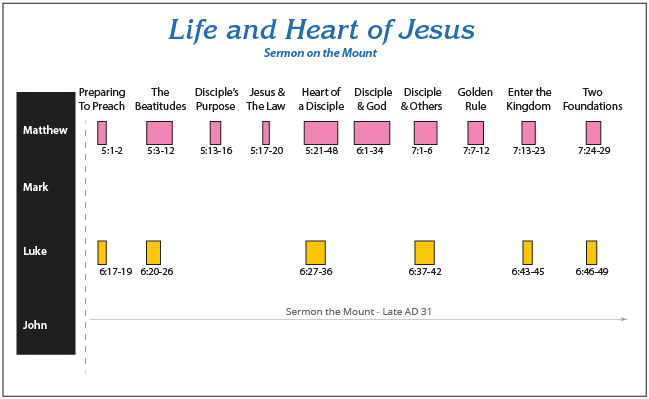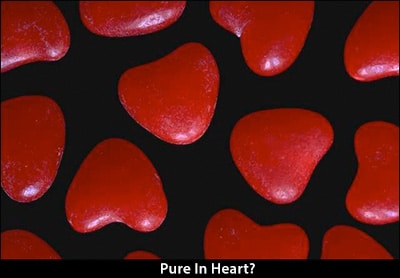Years ago someone asked, “Why doesn’t God just show Himself and remove all doubt that He really exists?” The response to his question was that God did show Himself in Jesus Christ two thousand years ago. So many believed Him that the faith exploded in the Middle East and spread into Europe, Africa, and Asia. Christians were willing to die for Jesus and many did as the Romans slaughtered thousands. But the good news of the faith still spread.
The great prophet Moses wanted to see God, but he was told that no man could see Him and live (Exodus 33:20). It is not possible for us to actually see God as He really is. He is not a ghost or a spirit as we think of ghosts and spirits. While He is invisible to our human eyes, He is not invisible (Revelation 4-5). He is something beyond our thoughts, dreams, and imaginations. The Apostle Paul had a glimpse of God but He appeared only as light (Acts 9:1-9). Recently, I was in Holland conducting a conference and someone asked if I had ever talked with God face-to-face. I was surprised by the question, but it revealed that people want to know God and talk with Him. They want to see Him.
Sixth Beatitude
Do you want to see God too? Our next Beatitude tells us the conditions for seeing God.
Blessed are the pure in heart, for they shall see God. Matthew 5:8 (NASB)
There is nothing special about any of the words that Jesus used in this Beatitude, except for the Greek word for “pure.” Therefore, we will focus on that word briefly. In the Greek, the word for “pure” has the idea of “clean, pure, unsoiled, and not dirty.” It was used to refer to refined metals such as gold, iron, and silver. That is, the word referred to metals with all the impurities removed. It was also used to refer to clothes that had been washed clean and to grain that had no chaff. But maybe the best example of the meaning of the word is when the ancients used it to refer to a group of soldiers that was purged of its cowards. “Pure” referred to all of the undesirable elements being removed.

The Heart
Now, what does the word “heart” mean? A story is told about a little boy who was asked by his teacher, “Where is your heart?” He responded, “My heart is where I sit down.” The teacher was surprised and asked, “How did you get that idea?” The little boy responded with, “Every time I do something good, my grandma pats me there and says, ‘Bless your little heart.'” I love that story of innocence. Well, our heart is not located where the little boy thought it was.
Throughout the Old and New Testaments, we can find references that seem to indicate that the ancients used the term “heart” to refer to the mind (Psalm 4:4; 14:1; Matthew 5:28; 15:19). But other passages seem to suggest that “heart” referred to our emotions (Psalm 4:7; 13:2, 5; 17:10; Matthew 5:28; 19:8) or even our will (Psalm 33:11; Acts 5:4; 8:22). Rather than assume that there is an inconsistency as some are motivated to conclude, it is better to realize that translations from one language and culture to another leave out something. If we put all of these pieces together, we discover that the Hebrews and Greeks used the term “heart” to refer to the mind, emotions, and will of the person – our inner person (Psalm 9:1).

Pure In Heart – Not Sinless
Therefore, Jesus’ phrase “pure in heart” refers to a heart or the inner person that has no undesirable elements. But what does that mean? We know that it does not refer to a sinless person. We know that by experience and because of 1 John 1:8, 10.
If we say that we have no sin, we are deceiving ourselves and the truth is not in us . . . If we say that we have not sinned, we make Him a liar and His word is not in us. 1 John 1:8-10 (NASB)
We are sinners and our hearts have been sinful from the day we were born (Psalm 51:5) until the day we die (2 Corinthians 3:18). So “pure in heart” cannot mean that the “pure in heart” are sinless.
Repentant Heart
Psalm 51 is a prayer from King David to God. The prayer occurred after he had sinned by committing adultery with Bathsheba. Yes, he enjoyed sex with Bathsheba; but as Hebrews 11:25 says, it was only passing pleasure. When David wrote this Psalm, he was in anguish because of his sin. His opening words in Psalm 51 are as follows:
Be gracious to me, O God, according to Your lovingkindness; according to the greatness of Your compassion blot out my transgressions. Wash me thoroughly from my iniquity and cleanse me from my sin. For I know my transgressions, and my sin is ever before me. Against You, You only, I have sinned and done what is evil in Your sight, So that You are justified when You speak and blameless when You judge. Psalm 51:1-4 (NASB)
Then later in verse 10, David asks God or help.
Create in me a clean heart, O God, and renew a steadfast spirit within me. Psalm 51:10 (NASB)
David was asking for forgiveness. He wanted to be forgiven – to be holy before God. A pure heart is a repentant heart that wants to be holy. A pure heart will want to flee from sin.
Now flee from youthful lusts and pursue righteousness, faith, love and peace, with those who call on the Lord from a pure heart. 2 Timothy 2:22 (NASB)
Pure Motives
In Psalm 73, we discover that a “pure in heart” also has pure motives. In this psalm the author, Asaph, says that God is good to those who are pure in heart.
Surely God is good to Israel, to those who are pure in heart!”Psalm 73:1 (NASB)
But then he compares himself to those who are “pure in heart” and implies that he was not. Asaph had almost stumbled because he was envious of the wealth of the wicked.
But as for me, my feet came close to stumbling, my steps had almost slipped. For I was envious of the arrogant as I saw the prosperity of the wicked. For there are no pains in their death, and their body is fat. They are not in trouble as other men, nor are they plagued like mankind. Psalm 73:1-5 (NASB)
Envy is a desire to have something that one does not own. As a result he was motivated to do something that almost caused him to stumble into trouble. This tells us that those who are “pure in heart” do not also have unholy desires as a pattern of life, and do not have a life filled with wrong motives.
Not Deceptive
Our next passage reveals that the pure in heart has also not given or “lifted up” himself or herself to falsehood and promises of honesty.
He who has clean hands and a pure heart, who has not lifted up his soul to falsehood and has not sworn deceitfully. Psalm 24:4 (NASB)
The “pure in heart” do not have a pattern of lying and do not claim that they have never lied. Recently a pastor claimed that he had never lied – he had always told the truth. 1 John 1:8-10 says that he is either self-deceived or a liar. And Psalm 24:4 says that he does not have a pure heart.
Has someone ever asked you to not reveal something that they told you? Maybe you even repeated your promise or said, “cross my heart and hope to die if I ever tell anyone!” If you made such a promise or something close to it and then told someone, you were not “pure in heart.” The “pure in heart” do not make false promises. The “pure in heart” keep promises that are made to their spouses, children, or friends even if it is inconvenient or they have a change of heart. The “pure in heart” are not deceitful.
The Apostle Paul also uses the phrase “pure in heart” in 1 Timothy in another sense. Paul tells Timothy that he teaches with a pure heart.
But the goal of our instruction is love from a pure heart and a good conscience and a sincere faith. For some men, straying from these things, have turned aside to fruitless discussion, wanting to be teachers of the Law, even though they do not understand either what they are saying or the matters about which they make confident assertions. 1 Timothy 1:5-7 (NASB)
The goal or purpose of Paul’s instruction is different from that of some teachers. Some teachers do not know what they are talking about, even though they make strong statements and are confident in their claims. Many public speakers, including debaters, politicians, teachers and preachers, substitute strong body language, words, and assertions when they lack content and truth, in order to motivate an audience to believe them. It is a common strategy. A dynamic speaker can often convince a crowd to believe a lie. We need to always check the accuracy of their statements in the light of scripture. Does scripture support their point?
Paul said that some teachers are unqualified to teach. Many teach anyway and they teach error. They want others to believe that they are qualified teachers, even though their training is incomplete and sometimes almost non-existent. Paul’s point is simple. They were not ready to teach, but they taught anyway. They wanted others to believe they were qualified to teach. They were deceptive. The same is true today. Many men and women are motivated to teach because they like teaching. Having a desire to teach does not mean someone should teach. There is nothing wrong with men and women learning to teach others while they learn scripture. But it is wrong to pretend to be an accomplished scholar of the Bible.
This passage reveals that those who are “pure in heart” are not driven by impure desires and are not attempting to appear to be something that they are not. They are what they appear to be. They are not pretenders. A man or woman who is “pure in heart” is not a hypocrite. Another characteristic of the “pure in heart” is that they are honest about themselves. They do not try to deceive.

Does Not Lie
King Saul provides another characteristic of a heart that was not pure in 1 Samuel 15:1-23. God had commanded King Saul to kill all of the Amalekites and not to take any spoils of war.
Now go and strike Amalek and utterly destroy all that he has, and do not spare him; but put to death both man and woman, child and infant, ox and sheep, camel and donkey. 1 Samuel 15:3 (NASB)
But Saul disobeyed God. Yes, he had his army kill the Amalekites but he keep the best spoils of the war.
But Saul and the people spared Agag and the best of the sheep, the oxen, the fatlings, the lambs, and all that was good, and were not willing to destroy them utterly; but everything despised and worthless, that they utterly destroyed. 1 Samuel 15:9 (NASB)
Some of us might have done the same thing. We might have been logical and rationalized that God did not really mean what we heard. Saul sinned. So God sent the prophet Samuel to Saul and accused him of disobedience. Samuel gave Saul an opportunity to reveal his heart. Here is Saul’s response to the prophet.
Then Saul said to Samuel, “I did obey the voice of the LORD, and went on the mission on which the LORD sent me, and have brought back Agag the king of Amalek, and have utterly destroyed the Amalekites. But the people took some of the spoil, sheep and oxen, the choicest of the things devoted to destruction, to sacrifice to the LORD your God at Gilgal.” 1 Samuel 15:20-21 (NASB)
Saul lied because he wanted to deceive Samuel and God. As a result, God stripped him of his throne (1 Sam. 15:26), and sent the prophet Samuel to find another king to replace Saul. Saul’s heart was not pure. He lied. He was deceptive. His motives were wrong.
Samuel went to the house of Jesse to find a new king. He would have selected Eliab, but God stopped him. Samuel would have made a bad mistake. We do the same. We look at a man or woman and think that they are great only to discover later that we were a poor judge. We are always looking at the outside. How do they present themselves? Are they funny? Are they charming or are they dressed nicely? God looks at the heart and He did not want another Saul. God was looking for a man with a good heart. So God made this statement to Samuel.
But the LORD said to Samuel, “Do not look at his appearance or at the height of his stature, because I have rejected him; for God sees not as man sees, for man looks at the outward appearance, but the LORD looks at the heart.” 1 Samuel 16:7 (NASB)
Hearts Today
So we should not be surprised that treaties between nations, companies, and individuals are signed and then broken. Treaties are often tools that are used to accomplish a hidden or concealed purpose. People scheme, plot, lie, and deceive to achieve a goal. Others flatter those around them with words in order to manipulate them. Those who flatter want us to believe that they are gracious, loving, caring individuals. Some followers of Jesus want us to think that they are great Christians, their marriages are wonderful, or that God has blessed them with wealth.
I know a dear man who desperately wanted others to think of him as a gracious, easy going, generous, and friendly individual. So he borrowed and spent money until he eventually owed a large sum of money. He could not afford to pay the debt and so he refinanced his home to cover it. He pretended to be something that he wasn’t.
Examining Your Heart
While Jesus was here on this earth, He told us that murder, stealing, adultery, lying, deception, insults, or robbery are not due to poverty, abuse, our parents, or lack of love. The problem in this life is within each one of us – our impure heart.
Do you not understand that everything that goes into the mouth passes into the stomach, and is eliminated? But the things that proceed out of the mouth come from the heart, and those defile the man. For out of the heart come evil thoughts, murders, adulteries, fornications, thefts, false witness, slanders. Matthew 15:17-19 (NASB)
The core problem is in our hearts. They are impure and evil. Listen to the prophet Jeremiah,
The heart is more deceitful than all else and is desperately sick; who can understand it? I, the LORD, search the heart, I test the mind, even to give to each man according to his ways, according to the results of his deeds. Jeremiah 17:9-10 (NASB)

My friend, only God knows what type of heart you have. The prophet warns us that we might not know our own hearts because they are “deceitful” and “desperately sick.” This reminds us of Halloween when children put on masks and pretend to be witches, ghosts, and goblins. Our outer appearance is a mask, but our hearts reveal who we are. So God searches our hearts and He knows what we are like. Martin Luther said,
I am more afraid of my own heart than of the pope and all his cardinals. I have within me the great pope!
God knows us better than we do. He knows if our hearts are pure. There is no escape from His divine eyes. God sees inside us – to the very core of our beings. He knows our hearts. He knows if we want to sin, think evil thoughts, have wicked desires, and harbor impure motives. He knows if we are being deceptive and when we lie.
Conclusion
Are you pure in heart? Do you want a pure heart? It cannot be purchased. It cannot be manufactured by a self-help book. Psychology will not do it. Welfare and money and social programs will not change you. Only those who are “pure in heart” will see God.
Who may ascend into the hill of the LORD? and who may stand in His holy place? He who has clean hands and a pure heart . . . Psalm 24:3-4 (NASB)
The Apostle John says that no one has ever physically seen God (John 1:18), but those who are followers of Jesus Christ will see Him sometime in the future just as He is (1 John 3:2). This is true because our hearts are deceptive and sick and only God who sees inside knows how to change us. Only the Holy Spirit’s power can make the change, but you must also want to be changed according to 1 Samuel 10:6-9 and Phil. 2:12-13.
This is great news. It is the dream of every true follower of Jesus. God is at work in everyone who believes Jesus Christ is God, Savior, and Master to make you “pure in heart.” Some day the “pure in heart” will see God.